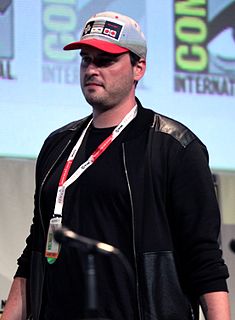A Quote by C. S. Lewis
The very idea of freedom presupposes some objective moral law which overarches rulers and ruled alike...Unless we return to the crude and nursery-like belief in objective values, we perish.
Related Quotes
The very idea of freedom presupposes some objective moral law which overarches rulers and ruled alike. Subjectivism about moral values is eternally incompatible with democracy. We and our rulers are of one kind only so long as we are subject to one law. But if there is no Law of Nature, the ethos of any society is the creation of its rulers, educators and conditioners; and every creator stands above and outside his own creation.
There is no author or legislator of the moral law. It is simply valid in itself in the nature or essence of things. We become autonomous only when we obey it, because then our will aligns itself with the objectively valid law, and our choice follows the same law as that we give ourselves. We can think of rational faculty (or the idea - the pure rational concept, not exhibitable in experience) as the legislator or author of the law because reason recognizes an objective standard, and to that extent is already aligned with objective moral truth.
I'm not saying that atheists can't act morally or have moral knowledge. But when I ascribe virtue to an atheist, it's as a theist who sees the atheist as conforming to objective moral values. The atheist, by contrast, has no such basis for morality. And yet all moral judgments require a basis for morality, some standard of right and wrong.
Wars are fought to gain a certain objective. War itself is not the objective; victory is not the objective; you fight to remove the obstruction that comes in the way of your objective. If you let victory become the end in itself then you've gone astray and forgotten what you were originally fighting about.
Art is not and never has been subordinate to moral values. Moral values are social values; aesthetic values are human values. Morality seeks to restrain the feelings; art seeks to define them by externalizing them, by giving them significant form. Morality has only one aim - the ideal good; art has quite another aim - the objective truth... art never changes.
Under theocracies and other authoritarian regimes, the rulers are the moral authorities. Under genuine democracy some basic values are entrenched in the legal system, which is expected to be under democratic vigilance, and others are left to the person or the group, which ideally debate moral problems in a rational, free and cooperative manner.
The phenomenon of economic ignorance is so widespread, and its consequences so frightening, that the objective of reducing that ignorance becomes a goal invested with independent moral worth. But the economic education needed to reduce such ignorance must be based on austere, objective, scientific content—with no ideological or moral content of its own.
I don't like the strictly objective viewpoint [in which all of the characters' actions are described in the third person, but we never hear what any of them are thinking.] Which is much more of a cinematic technique. Something written in third person objective is what the camera sees. Because unless you're doing a voiceover, which is tremendously clumsy, you can't hear the ideas of characters. For that, we depend on subtle clues that the directors put in and that the actors supply. I can actually write, "'Yes you can trust me,' he lied." [But it's better to get inside the characters' heads.]
True freedom is not advanced in the permissive society, which confuses freedom with license to do anything whatever and which in the name of freedom proclaims a kind of general amorality. It is a caricature of freedom to claim that people are free to organize their lives with no reference to moral values, and to say that society does not have to ensure the protection and advancement of ethical values. Such an attitude is destructive of freedom and peace.
From the beginning, there has been a tension in the reception of the Kantian idea of autonomy. If you emphasize the 'nomos' (the law), then you get one picture: the objectivity of ethics. If you emphasize the 'autos' - the self - you get the idea that we make the law. Kant never hesitated in his choice between the two emphases. He emphasizes the nomos (the universal and objective validity of the law).


































